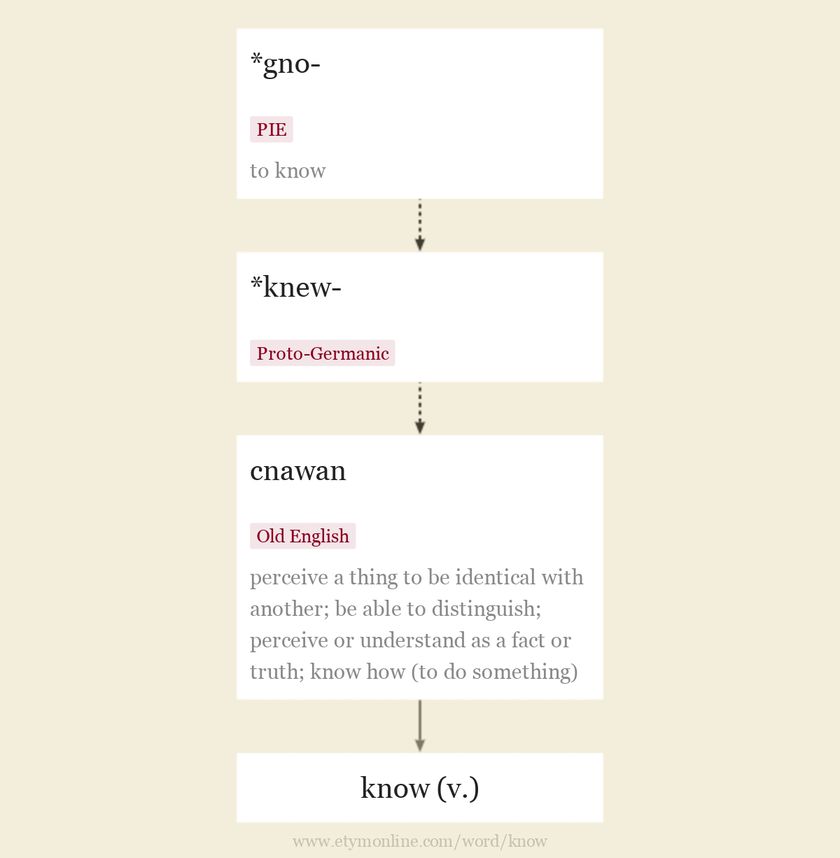Old English cnawan (class VII strong verb; past tense cneow, past participle cnawen), "perceive a thing to be identical with another," also "be able to distinguish" generally (tocnawan); "perceive or understand as a fact or truth" (opposed to believe); "know how (to do something)," from Proto-Germanic *knew- (source also of Old High German bi-chnaan, ir-chnaan "to know"), from PIE root *gno- "to know."
For pronunciation, see kn-. Once widespread in Germanic, the verb is now retained there only in English, where it has widespread application, covering meanings that require two or more verbs in other languages (such as German wissen, kennen, erkennen and in part können; French connaître "perceive, understand, recognize," savoir "have a knowledge of, know how;" Latin scire "to understand, perceive," cognoscere "get to know, recognize;" Old Church Slavonic znaja, vemi). The Anglo-Saxons also used two distinct words for this, the other being witan (see wit (v.)).
From c. 1200 as "to experience, live through." Meaning "to have sexual intercourse with," also found in other modern languages, is attested from c. 1200, from the Old Testament (Genesis iv.1). Attested from 1540s in colloquial phrases suggesting cunning or savvy (but often in the negative); to not know one's ass from one's elbow is from 1930.
As far as (one) knows "to the best of (one's) knowledge" is late 14c. Expression God knows is from c. 1400. To know too much (to be allowed to live, escape, etc.) is from 1872. To know better "to have learned from experience" is from 1704.
You know as a parenthetical filler is from 1712, but it has roots in 14c. You know as a euphemism for a thing or situation unmentionable is from 1867; you-know-who for a person it is thought best not to name (but implying the hearer knows) is from 1840.
As an expression of surprise, what do you know attested by 1914. Don't I know it in the opposite sense ("you need not tell me") is by 1841. You never know as a response to something unexpected is attested from 1924.
